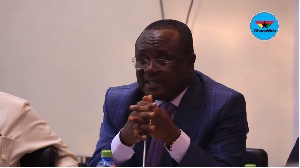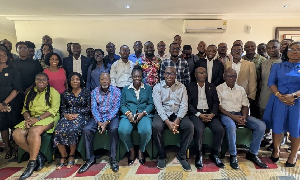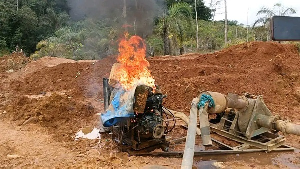Ghana's energy sector stands poised for transformation, driven by the imperative for efficiency, sustainability, security and economic growth. Central to this transformation is the strategic restructuring of the Volta River Authority's (VRA) thermal power assets, through privatization and re-engineering.
I have reflected deeply on the strategic benefits of privatizing VRA's simply cycle thermal power plants, re-purposing the hydroelectric resources, the Akosombo and Kpong Dams, for domestic industrial use, and fostering collaboration with the Volta Aluminum Company (VALCO) to drive Ghana's energy security and reliability agenda forward.
Privatizing VRA's simply cycle thermal power plants presents an opportunity to inject private sector dynamism, expertise, and capital into Ghana's energy landscape. By engaging Independent Power Generators, Ghana (IPGG), Ghana can unleash innovation and efficiency gains in the operation and management of these assets.
IPGG bring specialized industry-based knowledge and resources to the table, enabling the reconfiguration of existing infrastructure into more efficient combined cycle power plants. This transformation promises to enhance energy productivity, reduce operational costs, and bolster the reliability of electricity supply.
The re-engineering of VRA's thermal plants into combined cycle facilities represents a strategic move towards maximizing energy conversion efficiency and mitigating environmental impact. Combined cycle technology integrates gas and steam turbines, leveraging waste heat to produce additional electricity without increasing fuel consumption.
By re-purposing existing infrastructure and adopting advanced engineering solutions, Ghana can significantly enhance the productivity and sustainability of its power generation portfolio. This transition aligns with global trends towards cleaner energy production, positioning Ghana as a responsible steward of its natural resource utilization.
In tandem with thermal plant privatization, redirecting a good portion of VRA's hydroelectric capacity to domestic industrial consumers like VALCO offers compelling synergies and economic benefits. VALCO, as a major consumer of electricity for aluminium smelting, stands to gain from access to reliable and competitively priced hydroelectric power at about 3 US cents/kWh.
By prioritizing domestic consumption over exports to neighboring countries, Ghana can foster industrial growth, create jobs, and enhance value addition within its borders. This strategic realignment of hydroelectric resources underscores Ghana's commitment to leveraging its energy endowment for inclusive economic development.
Collaboration between VRA and VALCO emerges as a backbone for driving sustainable development in Ghana's energy and aluminium industry. By forging strategic partnerships, both entities can optimize resource utilization, enhance operational efficiency, and unlock synergies that benefit the broader economy.
Joint initiatives focused on energy efficiency, technical support, and capacity building can further amplify the impact of this collaboration, positioning Ghana as a regional leader in electricity reliability and industrial development.
The privatization of VRA's thermal power plants, coupled with the re-purposing of hydroelectric capacity for domestic industrial use, presents a transformative opportunity for Ghana's energy sector.
Embracing innovation and strategic foresight, we can open up the full potential of the power systems infrastructure and optimize the energy resources to drive economic growth, enhance industrial competitiveness, and improve livelihoods. This suggestion towards optimization and efficiency underscores Ghana's commitment to building a reliable and resilient energy future.
Dr. Elikplim Kwabla Apetorgbor
(CEO, Independent Power Generators, Ghana)
Opinions of Tuesday, 7 May 2024
Columnist: Dr. Elikplim Kwabla Apetorgbor















